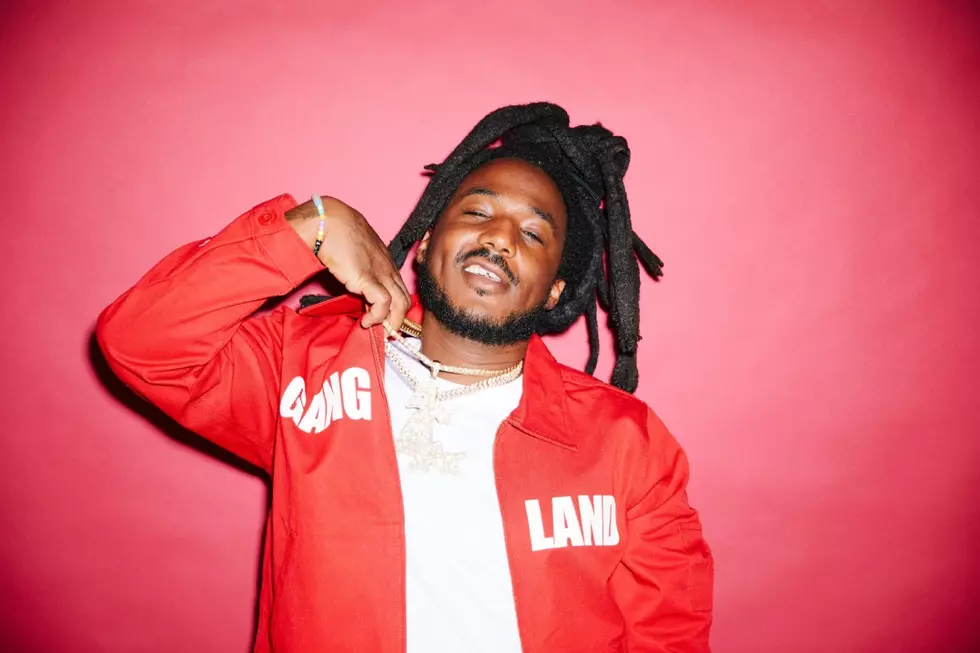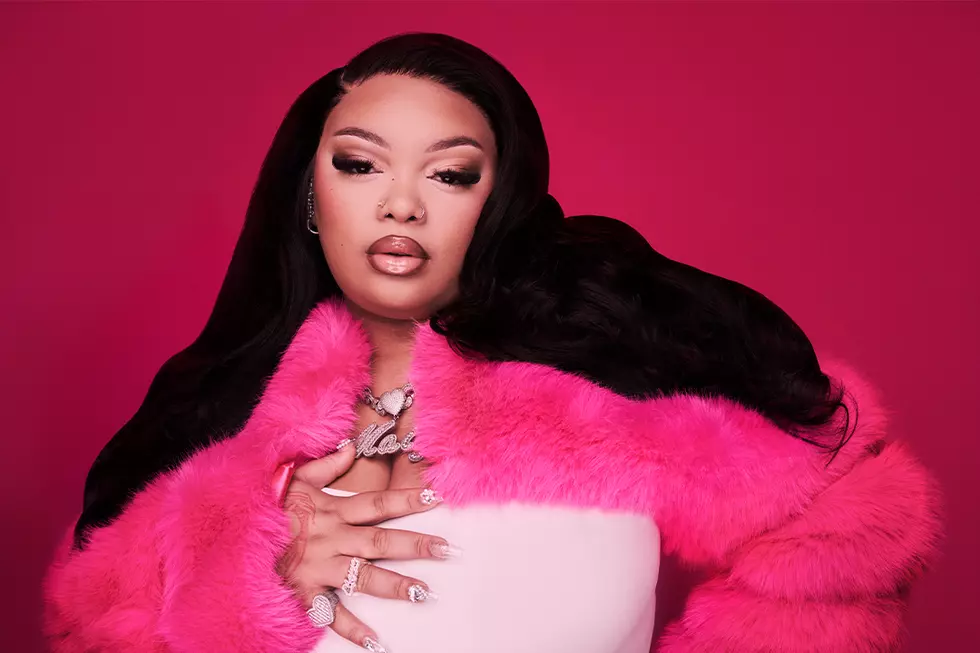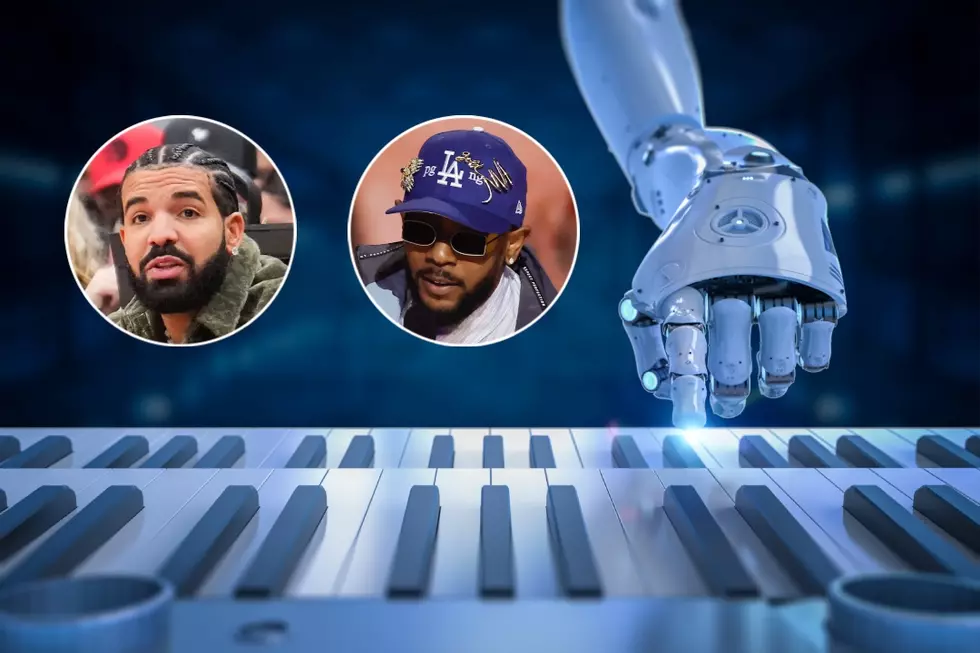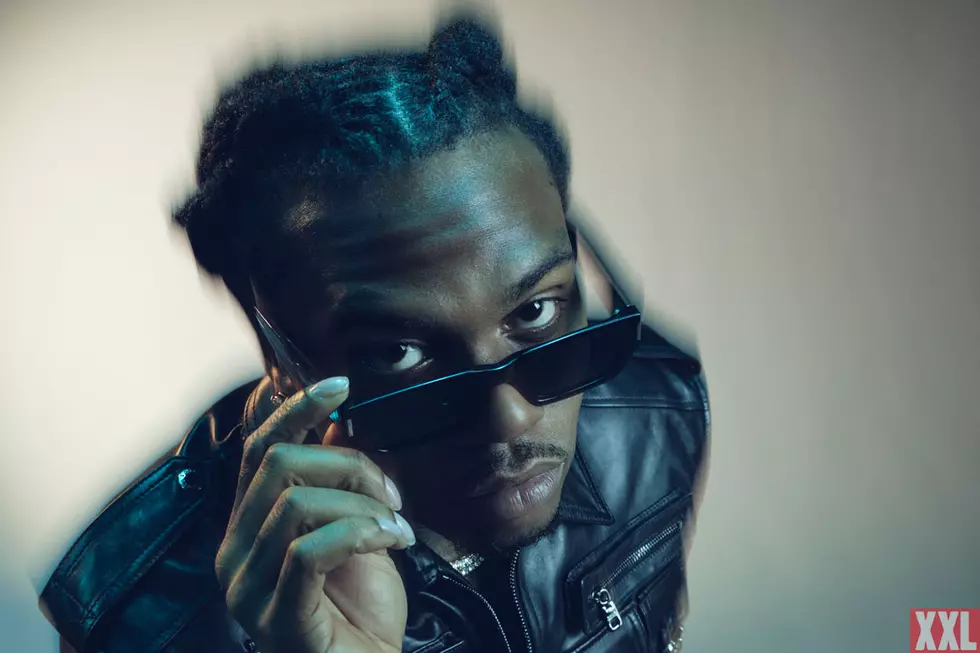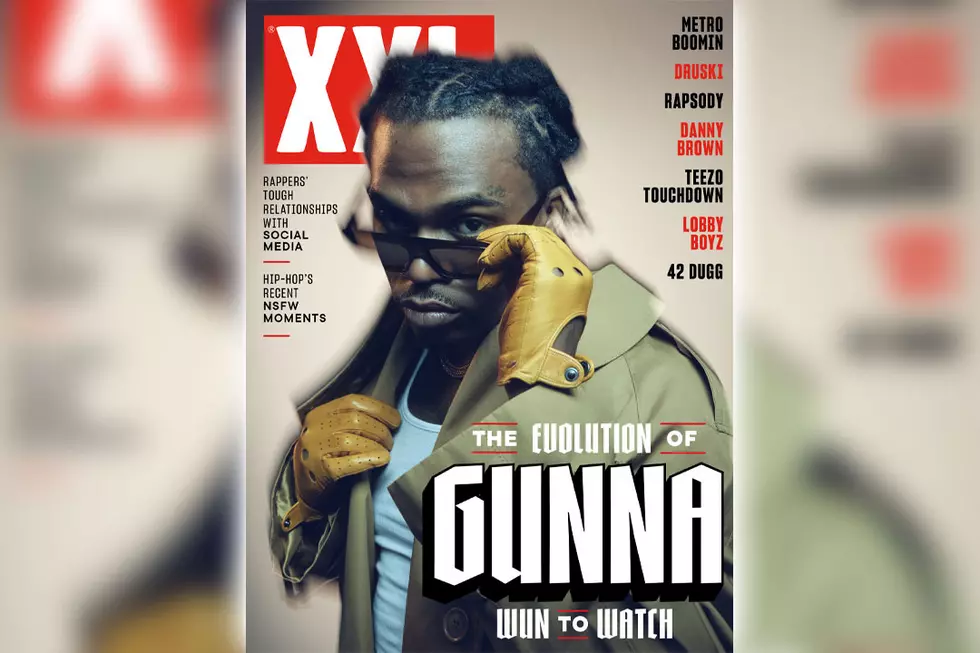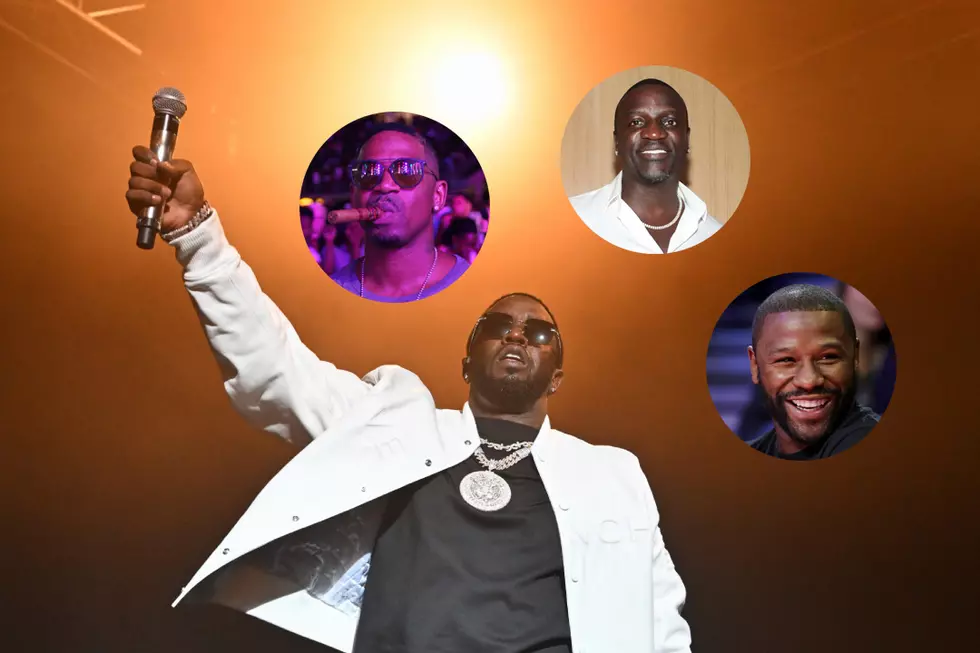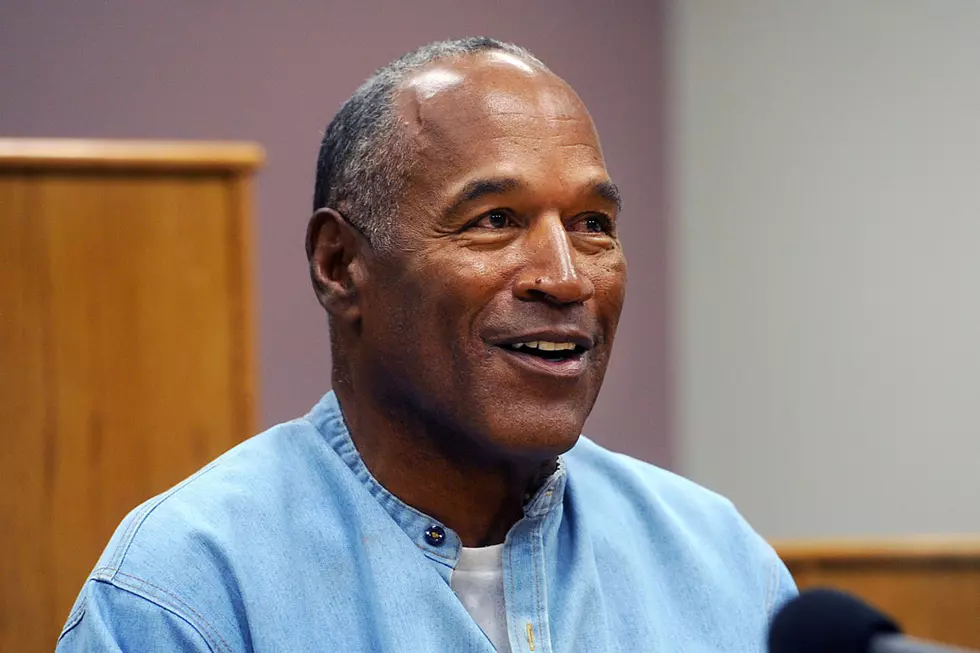
The Come Up: Montana of 300 Continues to Kick Knowledge With ‘Fire in the Church’
Montana of 300 is in high demand. In September, the Chicago native revealed that Def Jam, Columbia Records and G.O.O.D. Music were vying to sign him for his lyrical talent. Despite all the attention from major labels, Montana decided to remain independent, intent on controlling every aspect of his budding rap career.
The tatted-up 27-year-old, who bares trademark braids and a bandana, dropped his new album, Fire in the Church, on May 20. The 18-track body of work showcases Montana’s lyrical prowess, solid pen game and storytelling ability. Plus, his use of metaphors are at its pinnacle. Standout records including “WTS Now” and “Here Now” are racking up YouTube views, and the album's thought-provoking lyrics will allow it to age like a fine wine.
Montana compares his original tracks (reserved for the album) to competing for a championship. However, he has the most fun with his wildly popular remixes, which he says are "like an All-Star game." The "Try Me (Remix)" has more than 18 million YouTube views, "Ice Cream Truck (Remix)" has more than 17 million and "Chiraq (Remix)" has more than 14 million. And that's just the tip of the iceberg.
His "White Iverson (Remix)" has already accumulated over four million views, and it's only been out for one month. The fact that he's doing these type of numbers as an indie act makes it that much more impressive.
In a phone interview with XXL, Montana reminisces on the days he sold physical CDs out of the trunk of his old school Chevy. He delves into his relationship with Kanye West and speaks about a 10-hour recording session at Rick Rubin’s home, where he kicked it with icons including basketball superstar James Harden, hip-hop legend Russell Simmons and more.
XXL: How and why did you first start making music?
Montana of 300: First time I got in the studio I was in a house. I was in someone’s basement. That’s where I recorded my first two tracks. Starting out, I was burning CDs, writing my name on them with a Sharpie marker and giving them out to my friends. That was maybe 2004. Then in 2006 is when I started to get more serious with my presentation as far as having photo shoots and pictures of myself on mixtape covers. I was selling stuff out of the trunk of my old school Chevy.
What was the first project you put out that started gaining serious attention around Chicago?
I came up with this mixtape called 300. And that’s when I could really tell there were people who I didn’t sell it to hand-to-hand who had it and were talking about it. That was kind of surprising to me at the time, and that was probably the summer of 2009.
How did you choose Montana of 300 as your rap name?
I just liked how it stood for. I was always Tony growing up. Then when I started hustling in high school, my friends and everybody started calling me Tony Montana. Then, I felt like the name Montana was being used so often. There were a whole lot of Tony Montana nicknames going around.
I like the 300 movie so much and what it stood for as far as "No surrender, no retreat." And I got it tattooed on my forearms in 2006, so I just added "Only the hard, only the strong, against all odds." I felt like that really represented me and how I was grindin’ on my own. I felt like I was grindin’ against all odds. I wasn’t giving in or giving up. So I just added 300 to the name of my group, which is me and my homie Talley of 300. And at the same time it represents the group, even though I’m a solo artist. By mentioning 300 in my name, it shows I’m a part of something.
Chicago is such a melting pot of sounds. What sets you apart from other artists is your lyrical ability. What’s your writing process like?
I surprise myself, bro. Honestly. I’ll hear a beat and I’ll be like, Man, I don’t know what the hell I’ma say on here. But when I sit down and start digging in my brain, I just come up with some cold ass shit. I go crazy on certain shit. And I don’t dig like that on every song. When I do my remixes, those are made to crush every other remix. That’s my objective, so it’s like I’m doing some crazy digging from all over everywhere. That’s what makes you lyrical -- when you can put any off-the-wall thing into your music and have it make sense.
You’ve got to think out of the box, as opposed to some of my original songs where I have a certain concept that I’m trying to paint the picture for. And because I have to touch on that fact, I’m more in a box. I’ll still use metaphors here and there, but every line might not be a metaphor, because some of it’s a message. You have some fans who want to hear metaphor after metaphor after metaphor because nobody can really do that. It’s kind of what makes it amazing.
I sometimes say, "It would be the greatest thing if LeBron James ran down the court every possession and jumped and looked in the rim and dunked the ball." But after a while, to be a great player, you’ve got to know how to pass. You’ve got to know how to rebound. You’ve got to know how to play some defense. So those remixes for me -- it’s kind of like the All-Star game. Everything else is like, I’m going through the season, I’m doing what I gotta do -- I have certain original tracks that are comparable to my remixes, and those are the ones that are like the championship to me. When my album is coming out -- I’ve got a song called “Heat Stroke,” I’ve got a song called “Fighting Demons, Dropping Jewels,” I’ve got a song called “Angel With an Uzi,” those are the ones that are as lyrical as my remixes.
What do you want your fans to know about your new album, Fire in the Church?
I just want them to really listen, because I don’t say things just ‘cause they rhyme. Like I’m not just going to go with a certain line because it rhymes and it makes sense. I’m not trying to just get through my verses. Every line has a diamond in it, so you have to dig for it. I’m making you participate.
I want them to know that I’m kicking a lot of knowledge and a lot of jewels on this album, so I know everybody will be able to take from it and walk away from it with something. Whether it’s a new approach on life, whether it helps you look in the mirror, fix some of your wrongs or pass on some advice to someone you know who may need it -- things like that. And you’re still gonna get the Montana you expect, which is hella metaphors all over, hella wordplay, some swag and I got something for the females, too. The album is something that’s going to make you sit down and think and really appreciate life.
It’s real spiritual, too. Fire in the Church is basically about the bad within the good. Life isn’t full of positivity, so don’t expect my work to ever be full of positivity. I tell my fans, "I’m not perfect." Sometime people will be like, "How can you say you believe in God, and you make music about killing people sometimes?" And I actually responded to that in a rap where I have a line that says, “We rock heavy metal/You’ll live if I let you/Might raise a lil’ hell but don’t rock with the devil/Just know he gon’ test you/Don’t fall for his tricks, gotta make him respect you/The Lord won’t neglect you/Might curse on these tracks but I’m still gonna bless you/Rap God to the rescue.”
And that’s basically saying that I’m not perfect. And I might do certain things, but at the same time I’m gonna bless you. I’m not just gonna give you what you want all the time. I’m gonna give you what you need. So, later on, that’s what’s going to make the difference between me and other artists. Five years from now, 10 years from now, 15 years from now, for a lot of these artists, nobody is going to be buying their albums to see what they can get from it or learn from it. But people [still] buy Nas albums today and 2Pac albums today. They go back and get Jay Z’s old albums and Biggie’s and stuff like that. There are jewels and diamond in there that they can go back and learn from. As opposed to, Oh, we used to get turnt up to this album back in 2004. Let me go buy that album.
Chicago is having a moment right now with artists like G Herbo, Lil Durk, King Louie and Chance. Are there any lesser-known Chicago artists that should be getting more attention?
I’m not really sure because I don’t listen to anybody unless one of my homies gets in the car and they plug in the aux cord. But the best rapper in Chicago, excluding myself, he died about a year ago. His name was Young Pappy. I feel like none of those Chicago artists were on his level. I saw something in him that I feel like was only in me. He had a fire burning and a certain passion about himself that rappers don’t possess. I’ve seen me with [that passion], or maybe DMX a little bit, but he was way ahead of his time. He was young, too -- I think he was like 20 years old. So there’s not really too many who can surprise me, lyrically, but he definitely did.
For someone new who’s coming up now, the only advice I can really give to them is to be different and be original. Because a lot of artists think to themselves, Oh, this is what works for this artist, this is what works for Montana, this is what works for G Herbo. People want to hear something they’ve never heard before. That’s going to make it stand out. How do I put this in a way that can’t be ignored? How do I put this in a way that nobody’s ever put it before? This whole idea of saying something that’s real on a track -- the majority of what [other artists] say has already been said before. For example, "Blood is thicker than water." We’ve heard that before. Or, "I’ve got to keep my friends at a distance and my enemies close." We’ve heard that before!
I’ve got something on my album where I say, “You niggas using instructions, you niggas ain’t using logic/One shot in between your eyes, you’re closing them like a closet/The afterlife isn’t promised/Only death, we can’t dodge it/This life we live ain’t forever, so make the most while you got it/Don’t fry your brains with narcotics, see God is my only chronic/Your demons might bring you down, but he’ll bring you up like hydraulics/I’m full of wisdom and knowledge and sharin’ it like a prophet/So love me all for my actions, not ‘cuz of what’s in my pockets.”
It’s certain things like that on my album that people really need to hear -- it will help people be able to walk away from it with something. And I just really feel like God has been blessing me over and over and showered me with blessing as of late, and with great power comes great responsibility. So I feel like my way to repay him is to do good by the rest of his children and creations while I have their attention. And give something they can use. I can’t give you all a hundred dollars apiece, even though I would like to.
What was it like getting to meet and work with Kanye West?
He was cool as hell. Most people portray him as an asshole. I think he’s just sticks with his company. If you’re in his company, then you’ll see that he’s down to Earth and that he’s just like us. He jokes around, he plays, he cracks jokes and shit like that. And he told me himself that basically, the media is his enemy. If me and you have a relationship, and you have my number, and you hear something bad about me, are you just gonna go print it out in your newspaper or in your magazine? Or are you gonna call me about it and ask me? If you put it in your magazine before you call me and ask me, you’re not really my friend. You’re just trying to help yourself out even if it means throwing dirt on my name. And that’s kind of how he explained it. But it was great working with him and being in the studio with him. We were probably in the studio for 10 hours until we went to sleep.
But he’s a real good dude and actually, he was treating me like I was bigger than him! He was asking me what my writing process was like and asking me about things that I do when I write or some of the stuff that I come up with. He was speaking very highly of me. You know when you leave someone and they talk about you after you leave, but you’re not there to witness how they talk about you? So many famous people came to the studio while we were there, and I got to hear him talk up on me to James Harden or to Russell Simmons. I was there to witness what he had to say about me or his perception of me. I almost wanted to record that shit, you know. He was blown away by my music and said, "I’ve never heard that many cold ass bars in one song in my life." That was the first thing where I was like, Wow, he just said that shit.
What did you and Kanye cook up in the studio together?
We weren’t working on tracks for ourselves, but I was showing him what I was working on. And a lot of his album that just came out -- I heard it while I was there. We were at Rick Rubin’s house.
What’s something that most people wouldn’t know about you?
Probably that I don’t smoke or drink. And that I don’t go to clubs unless I’m being paid to be there. I’ve never been drunk in my life, I’ve never had a shot of anything. The most I ever did was when, you know, your parents might let you take a sip of something and then, as a kid, you’re like, "That’s nasty," and you spit it out ‘cause it burns your chest. Other than that, I haven’t smoked since I was 14.
50 Fire Hip-Hop Albums You Need to Listen to This Summer
More From XXL

